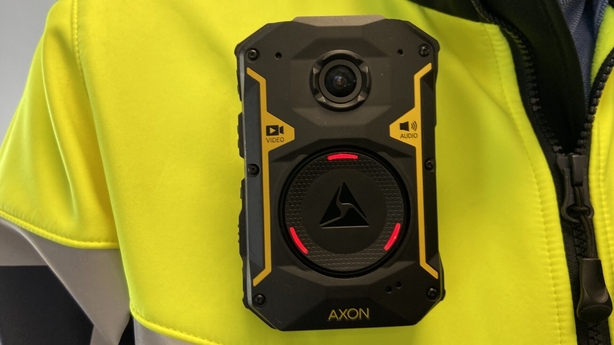More than 130 motorists have been arrested so far this Bank Holiday weekend for driving under the influence of an intoxicant.
Drug and alcohol testing on drivers is being carried out at garda checkpoints around the country since 7am on Thursday as part of An Garda Síochana's Bank Holiday Road Safety plan.
Superintendent Liam Geraghty said it has been "very busy operation", and that as of 7am this morning, 137 arrests were made for driving under the influence.
Supt Geraghty said gardaí "consistently focus" on speed during enforcement campaigns, adding that two of the notable speeding detections this weekend were a motorcyclist travelling at 146km/h in an 80km/h zone in Co Wicklow and another vehicle detected at 190km/h in a 100km/h zone on the N4 in Mullingar.
"These sort of speeds are completely unacceptable on our roads," said Supt Geraghty.
We need your consent to load this rte-player contentWe use rte-player to manage extra content that can set cookies on your device and collect data about your activity. Please review their details and accept them to load the content.Manage Preferences
Speaking on RTÉ's Morning Ireland, he said: "It is better to arrive home a little bit later and safely, than to not arrive home at all.
"We would also just appeal to people that, even within the speed limit, to slow their speed down and moderate their speed a little bit," he said.
"The main problem with speed is if you are unfortunate enough to be involved in a road traffic collision, the higher the speed you’re travelling at, the greater the impact of that road traffic collision and the greater the possibility of death or serious injury."
We need your consent to load this rte-player contentWe use rte-player to manage extra content that can set cookies on your device and collect data about your activity. Please review their details and accept them to load the content.Manage Preferences
Meanwhile, a system that will allow the public upload video evidence, including that of dangerous driving caught by road users, to garda systems could be in place within the next two years.
A digital evidence management system is being introduced by An Garda Síochána to deal with incoming video as part of the launch of body-worn cameras by gardaí, and will be later extended to other video footage.
The system will be rolled out to the public in "18 months to 24 months" time so that they can upload material and was something gardaí had "been looking at for a while" in terms of the road safety strategy, said Supt Geraghty.
"We will be extending that system to allow members of the public to provide us with video footage that they may have retrieved. That's not just in terms of road safety and driving on the road, but also in terms of our appeals for people with dashcam footage or video footage in terms of major crimes," he said.

Supt Geraghty said it will make it easier for gardaí to investigate reports of dangerous or reckless driving and could be used as evidence in court.
"When that rolls out, people will be able to upload footage, but we will still require the people who are uploading that footage to make a statement to prove the authenticity of the footage.
"But it will make the system far easier for us to get that footage from other drivers on the road who have complaints about the driving of other people, to make that complaint to us and allow us then to investigate it properly."
Bank holiday road safety campaigns 'not going near enough'
Susan Gray, Founder and Chairperson of PARC, has said garda checkpoints at bank holiday weekends is "not going near enough" to address dangerous driving as she warned of complacency around road safety.
"What we need to see now is constant visibility of garda on a regular basis, not just long weekends but every weekend."
She has called for more gardaí to be assigned to road policing. "At present we only have 623. That has gone way down in the last two years."
She also said all garda vehicles should have the Automatic Number Plate Recognition (ANPR) technology installed. She said currently only 130 have it, which amounts to "39% of the full fleet".
Ms Gray said along with more gardaí policing the roads and providing them with better technology, gardai and insurance companies should have instant access to the Department of Transport's driver file database.
"It beggars belief that in 2024 the gardaí have yet to gain instant access at the roadside to this database."
She said insurance companies have been promised to get access to that database to identify disqualified drivers that are continuing to drive on our roads.
In the UK she said the police force have the information they need from vehicles and drivers at the roadside "at their fingertips" and she described it as an "absolute disgrace" that it is not the same in Ireland.
"We need to see that changed now."
Meanwhile, gardaí have confirmed advances in technology are helping to assist them with detecting road offences.
They said 130 Roads Policing Vehicles are equipped with ANPR and since May of this year an ANPR app has been extended to Garda Mobility devices of all roads policing members.
The gardaí said it has operated ANPR technology in roads policing vehicles for many years and this is not a recent technology.
However, it said advances in ANPR technology have increased the effectiveness and efficiency of the system.

